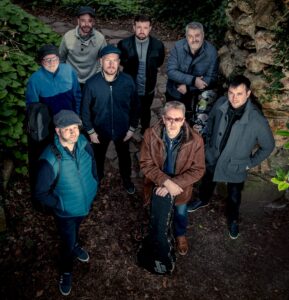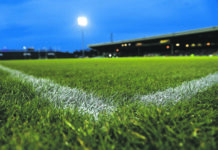![Wolfe Tones Press Photo[89]](https://www.limerickpost.ie/site/wp-content/uploads/2023/08/Wolfe-Tones-Press-Photo89-1-696x486.jpg)
With just two weeks to go, The Wolfe Tones big outdoor show this Summer in Limerick at the Gaelic Grounds on August 26 is adding even more acts to the bill. The Wolfe Tones will head up a lineup that includes George Murphy & The Rising Sons (pictured), Michael Maloney and Cailíní Lua for an unforgettable day of music.
The Wolfe Tones show at the home of All Ireland Champions is now sold out.
The licence has been granted for The Wolfe Tones biggest outdoor this Summer at the Gaelic Grounds on Saturday August 26 just as organisers announce that the event has sold out.
The Wolfe Tones will head up a line up that includes George Murphy & The Rising Sons, Michael Maloney and Cailíní Lua legends on stage for an unforgettable day of music.
A Full Bar Service and multiple food concessions will be in place at the Gaelic Grounds all day for this over 18’s event with seating and standing available in the ground .
The home of the All Ireland Champions will ring to the sound of Ireland’s biggest folk group this summer as The Wolfe Tones appear at TUS Gaelic Grounds on August 26
The Wolfe Tones continue to thrill audiences and pack venues worldwide and the week after The Gaelic Grounds are one of the headline acts at Electric Picnic. Noel Nagle, Tommy Byrne and Brian Warfield today comprise arguably the world’s most popular Irish folk group.
They have launched their own whiskey, become a sensation on TikTok amassing over 800k likes, and topped the BBC Best Song in the World poll with ‘A Nation Once Again’, they show no sign of slowing down so the time is right for them to headline their biggest outdoor show.
The band emerged during the turbulent era for Irish nationalism in the 1960s.
The group was formed in 1963 in Dublin. Drawing inspiration from the famous 18th-century Irish rebel leader, Theobald Wolfe Tone, they aptly named themselves The Wolfe Tones.
They were waiting in a pub in a village in County Clare to catch a ferry across the estuary of the river Shannon to play in Ballybunnion, County Kerry that they named themselves “ Wolfe Tones”.
It was in honour of the 18th Century Irish Nationalist leader who was condemned to death by the occupying British forces but cheated the hangman the night before he was to be executed by cutting his own throat. The name and the symbol it evokes in Irish history and republicanism, has inspired them since.
“The name seemed to fit into place from the start, we all nurtured a strong sense of national pride and identity”, recalls Brian Warfield.










